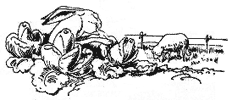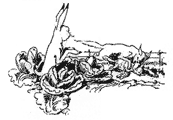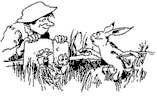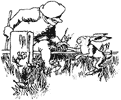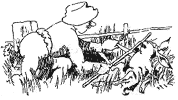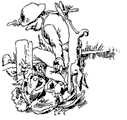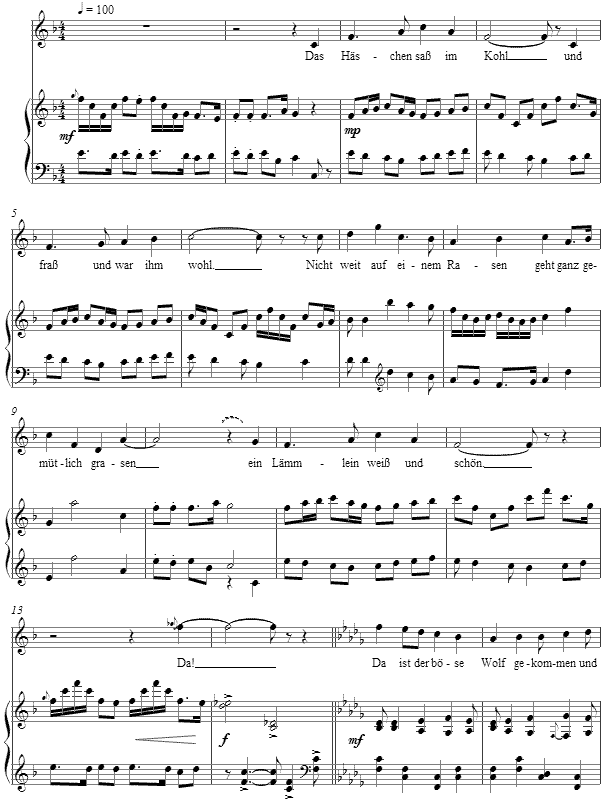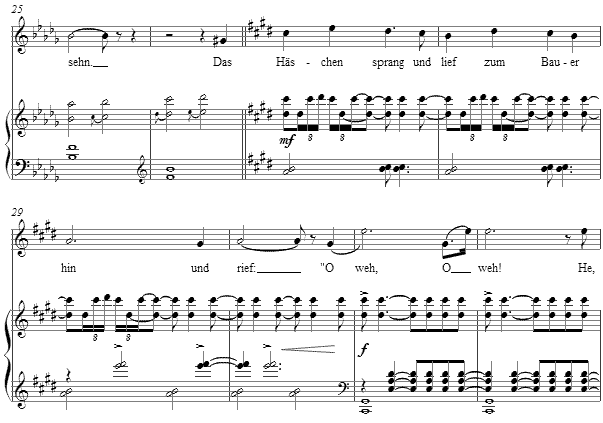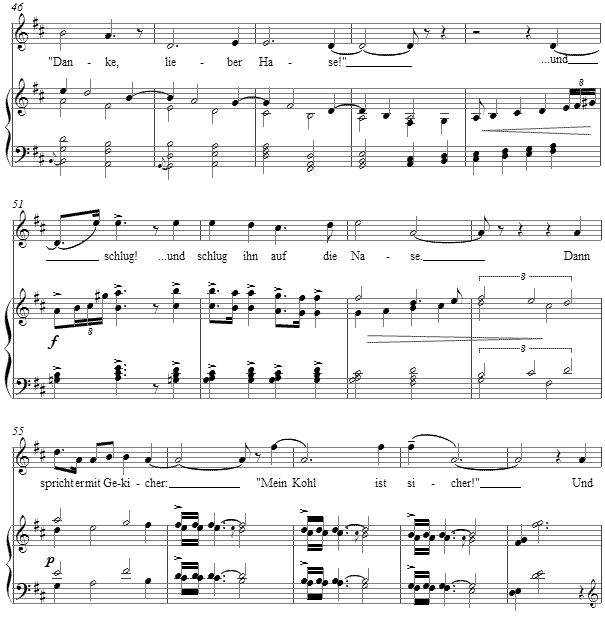Music and Texts of GARY BACHLUND
Vocal Music | Piano | Organ | Chamber Music | Orchestral | Articles and Commentary | Poems and Stories | Miscellany | FAQs
Das Häschen - (2007)
Wilhelm Busch
for high or low voice and piano
Das Häschen saß im Kohl
und fraß und war ihm wohl.
Nicht weit auf einem Rasen
geht ganz gemütlich grasen
ein Lämmlein weiß und schön.
Da ist der böse Wolf gekommen
und das Lämmlein mitgenommen;
Das Häslein hat's gesehn.
Das Häschen sprang und lief
zum Bauer hin und rief:
»O weh, o weh! He, Bauer, he!
Grad' ist der böse Wolf gekommen
und hat dein Lämmlein mitgenommen!«
Da nahm der Bauer Rüppel
den dicken harten Knüppel,
sprach: »Danke, lieber Hase!«
und schlug ihn auf die Nase.
Dann spricht er mit Gekicher:
»Mein Kohl ist sicher!«
Und wer noch fragt,
was dies besagt,
ist offenbar
so klug al wie das Häschen war.
[ 4 pages, circa 2' 40" ]
Wilhelm Busch
As Busch was a fine cartoonist as well as author, and as this fable was published for children in the same manner as the darker tales collected by the Grimm brothers and others, small reproductions of Busch's larger cartoons are included with the telling of this tale below:
The little rabbit sat in the cabbage patch and ate contentedly.
Not far away in the grass and grazing happily was a lovely, white sheep.
Then did an evil wolf come by, and took the sheep away; the little rabbit saw it all.
He rushed to deliver this news to the farmer and cried:
»O my, o my! Hey, farmer, hey! A wolf just came by and stole your lamb away!«
Then the loutish farmer took a thick, stout cudgel, and said, "Thank you, lovely rabbit!« and hit him on the snout.
Then he said with a snicker, »My cabbage is safe!«
And who would ask further what this means is generally as clever as the rabbit was.
In this supposedly modern age of educational sensibilities which seeks to deprive children of tales of the real world from such masters as Busch, Andersen and the Grimms, such a tale is well worth heeding as Busch himself suggests to us at the end of the poem. Those who learn such lessons as Busch offers are indeed more clever than the rabbit, which no doubt ended up as dinner, just as the cabbage was its dinner.
range in the high voice edition
This humorous lesson is well worth repeating, and begins with a pleasant, two-voiced delicato to introduce the rabbit and, in turn, the lamb. The setting turns darker as the wolf comes to take the lamb away. The key changes from F major to B-flat minor and the alternating high and low lines in the accompaniment alternate percussively.
What follows is the rabbit's headlong rush to convey the news to the farmer, as the key changes again to C-sharp minor by a common-tone association. We should believe that the rabbit's Angst was real.
Just a real a perspective is the farmer's concern for his cabbage, quite as much a real concern as the competing sympathies of the rabbit for the lamb. The farmer gently prepares the rabbit for its "surprise" with a sweet key change and textural alteration to D major before the rising gesture and alternating dominant and subdominant cudgeling of the rabbit to death. What was for dinner this evening? Certainly not filet of wolf.
The opening theme returns, anchored in the farmer's D major to close this song setting.
The score for Das Häschen is available as a free PDF download, though any major commercial performance or recording of the work is prohibited without prior arrangement with the composer. Click on the graphic below for this piano-vocal score.

